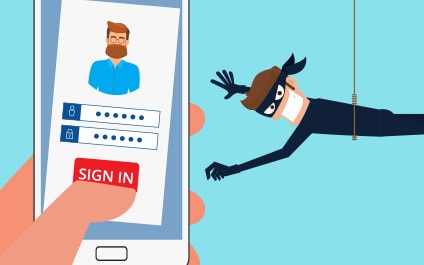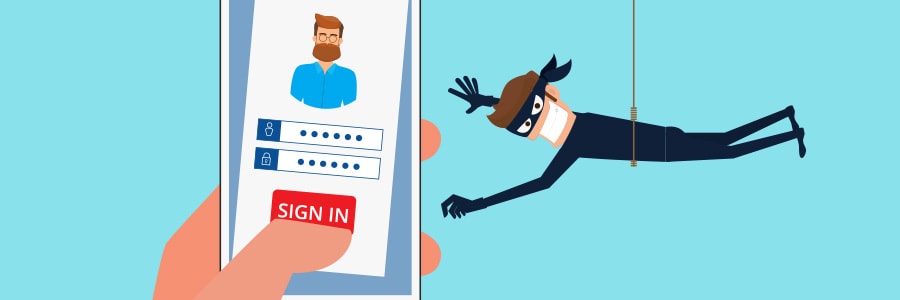When your productivity is measured in tasks crossed off your checklist and projects finalized, it’s easy to develop a one-track mind. You know you need to get your work done, so other details, such as IT security, fall to the wayside. After all, isn’t that why you have an IT department, or outside managed IT services? Yes and no.
IT security is everyone’s responsibility. If one person doesn’t take precautions, the entire network could suffer. Here are three things every employee in a company must do to keep the business safe in today’s day and age.
Practice Vigilance
Probably the best thing you can do for your business is to practice vigilance. Security threats exist at every digital turn, which means you, as an employee, have a responsibility to be aware of what’s out there. Here’s how.
Stay Smart When Checking Your Email
Email is one of the easiest ways for hackers to break into your company and they do so by getting people to click a malicious link that they include in an email.
In 2017, DigitalGuardian reported that 91 percent of cyber attacks started with a phishing email. Phishing emails are made to look like emails from reputable sources, but, if you’re not careful, they will redirect you to a website and steal your passwords and information. Emails with ransomware are similar. The messages look legitimate, but just by clicking a link, you might be putting the entire network at risk.
It’s important that you only open and download emails from trusted sources, and only enter sensitive information when you’re confident it’s on a trusted sources’ website.
Stay Smart When Using Thumb Drives
Another way hackers can attack your company’s network is through hardware. Specifically, thumb drives. If you use thumb drives to transport information, such as presentations, confidential documents, or other business intelligence, make sure you’re using a secure thumb drive to store the information.
Be Cautious About The Sites You Visit
During your workday, it’s normal to conduct searches for information. However, sometimes, this can steer you toward websites that could be laced with threats.
As you go through your workday, be smart about what you download and from where. Torrent sites or video streaming websites are all known for having viruses and malware attached to files. Be extra cautious about what you put on your company’s computers.
Use Strong Passwords For All Accounts
If you’re like many people, you’re using a weak password. The most common passwords from 2017 are shocking. Numerical series, such as 123456 are among some of the most popular passwords. Other popular passwords include variations of the word “password.” Neither of these are secure.
Here is a guide for choosing a strong password as well as the most common passwords used in 2017.
IT Security is Up To You
IT security is everyone’s responsibility. By being smart about how you use email, search for outside websites, and the passwords you use, you can dramatically improve your network’s overall health and security.


